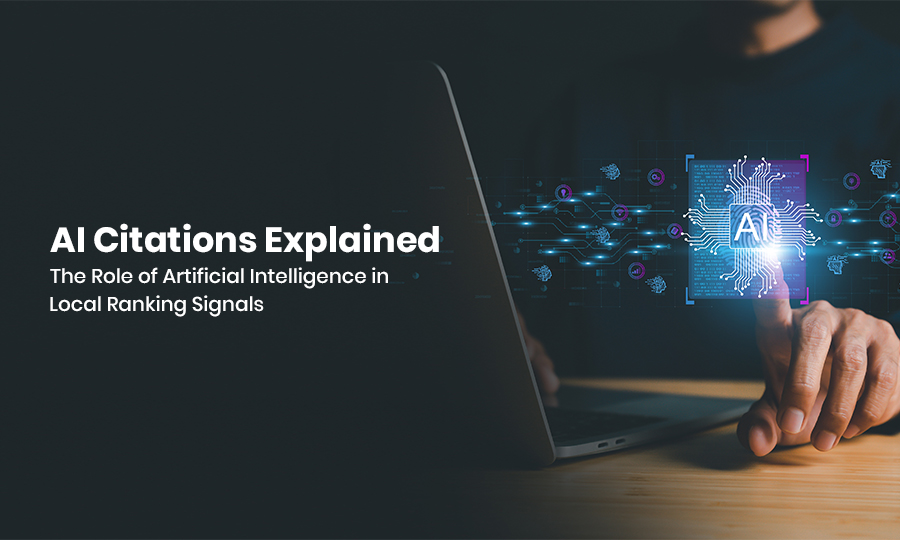Being a business owner, you have to maintain your online presence all over the internet. So, you cannot maintain your own; you need to use various online platforms or tools. After 2017, artificial intelligence created a revolution everywhere. So, when you maintain all your contact information, address, and all other details, AI gives its best to manage and organize all the data efficiently. You have listed your business across various online directories, so you need to check that all the information is correct and always updated. A citation is any mention of your business’s NAP (Name, Address, Phone) on other websites, directories, or platforms. However, with the emergence of artificial intelligence, you can update and maintain these with an AI citation.
It will reduce efforts and your time to manage all your business information across different platforms. Approximately 40.58% of AI citations come from Google’s top 10 search results. It emphasizes the importance of ranking high in search results to improve accessibility in AI-generated content. AI citation ensures that your information is consistently accurate and up-to-date and helps your brand improve your online visibility and authority.
In this blog, you are going to learn about optimizing citations for academics and how it will uplift your local rankings. How you can implement APA, MLA, and Chicago citations, and what the best tools are to generate citations. Moreover, top strategies to optimize AI citations and how Generative AI, Answer Engine Optimization (AEO), and Generative Engine Optimization (GEO) can help you to increase your local rankings.
So, let’s start with the evaluation of AI citation and find out how AI has a significant impact on local ranking factors.
What Are AI Citations, and Why Are They Important for Rankings?
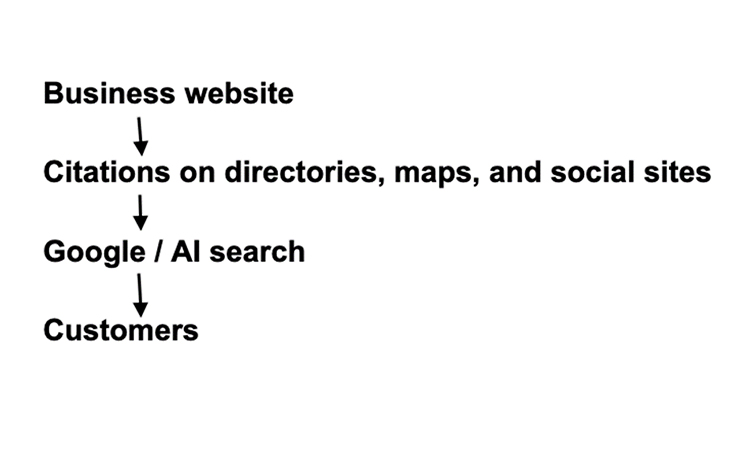
Before getting into the in-depth explanation about AI citation, you need to understand the core. You put all your contact information and business details on your website. Then these business details (NAP = Name, Address, Phone number) show up on other websites — like Google Maps, Yelp, Facebook, Justdial, Yellow Pages, Bing Places, Apple Maps, TripAdvisor, local directories, etc. It’s called citation.
- Own website = not a citation (but still important for SEO).
- Other websites/directories = citations (crucial for local SEO and AI-powered rankings).
This citation is highly significant for Search Engine Optimization (SEO). This seo technique will help your website to appear at the top of the search results. Yes, you can create an elegant website, but without proper SEO, your website can not pop up in search engines. There are various SEO techniques like On-page, Off-page, Technical, and Local SEO. Whether you’re building a startup or leading a global brand, you need to capture the local market. So you have to implement local seo. And Citation is the most important part of local rankings.
So, when you list your business in various online business listing platforms, you need to maintain accuracy. Here comes AI citation. It will check all listings across multiple platforms and make sure they are accurate and up-to-date. AI-generated content can be cited as personal communication in Vancouver and CSE styles. The more accurate your citations are, the more trust you earn, which can help you rank higher in local search results. Traditionally, companies or agencies had to manually correct and generate citations one by one across dozens of directories. This was slow, repetitive, and there were chances of errors.
Importance Of AI Citation In Local Rankings
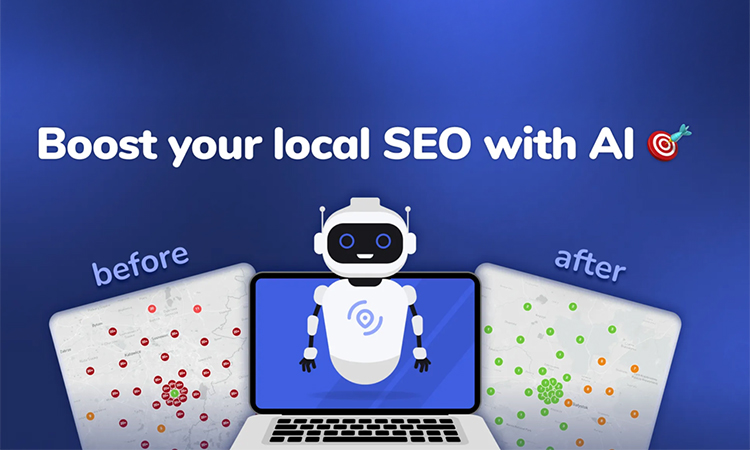
- Stronger Local Visibility-AI citations give search engines signals that your business is authentic and loved by numerous people. This helps improve your search engine ranking and attract more customers. You have a better chance of showing up in the top local results if information like your address or phone number stays the same across all platforms.
- Fighting Inconsistencies- Different websites, articles, and directories that list businesses with different information hurt many of them. AI tools can examine large databases, detect errors, and fix them immediately. You won’t lose local customers, and the citation process will go smoothly.
- Smart Use of AI Tools- Modern citation tools powered by artificial intelligence don’t just update information; they also evaluate patterns. Smart citations: Use artificial intelligence to check if your citations are right 32% of US adults believe AI provides a better local search experience than traditional search. This helps make accurate citations every time. Research shows that prominent citations will help websites rank better. They can detect mistakes, suggest the best directories to use, and even show you how to make citations that have an impact on local rankings.
- Trust Signals for Google- Just like in-text citations develop legitimacy in academic work, genuine business citations act as trust indicators for search engines. The more AI-generated systems validate your information, the more credible Google views your listing.
- Long-Term Growth Advantage-Local rankings aren’t only about keywords. So you need to combine smart citations, accurate verification, and AI-driven updates. This lays a long-term basis for increased search visibility and customer trust for both startups and veteran companies.
How Do AI Citations Differ From Traditional SEO Citations?
| Aspect | AI Citations | Traditional SEO Citations |
| Definition | Business listings are managed and optimized using AI tools that detect errors, suggest improvements, and scale quickly. | Business details (NAP: Name, Address, Phone) are manually submitted to directories, maps, and platforms. |
| Accuracy | AI ensures real-time syncing across multiple platforms, reducing errors. | High risk of inconsistencies if updates aren’t made manually. |
| Speed | Fast – AI tools update hundreds of citations within minutes. | Slow – each listing must be updated one by one. |
| Scalability | Ideal for startups to large enterprises managing multiple locations. | Practical only for small businesses with limited listings. |
| Smart Insights | AI tools analyze performance, detect duplicates, and provide ranking signals. | No insights – just listing your business information. |
| Cost | Usually subscription-based (e.g., BrightLocal, Yext, Moz Local). | Often free or low-cost, but labor-intensive. |
| Best Use Case | Businesses that want consistent, scalable, and AI-powered local SEO. | Small local businesses with very few directories to manage. |
Which Industries Benefit Most from AI Citation Integration?
- Academic and Educational Sectors
- Universities and research institutions
- Online learning platforms
- Professional development organizations
- Healthcare and Professional Services
- Medical practice local SEO requirements
- Legal firm citation strategies
- Consulting and professional service providers
- Technology and Innovation Companies
- Software development firms
- AI and tech consulting businesses
- Research and development organizations
How Can You Create AI Citations That Boost Local Rankings?
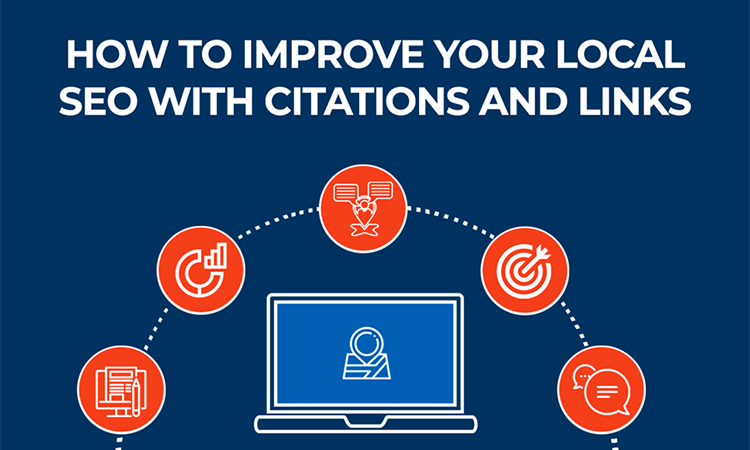
- AI-Generated Content Citation Requirements
- The first thing we talk about is citing AI-generated content. It’s like, when you create content with generative AI like ChatGPT and Claude, you need to mention their names. Moreover,
A Large Language Model (LLM) is an intricate AI system developed on vast amounts of text to understand and generate human-like language. These AI tools, like ChatGPT, Google Gemini, and Claude, help you create citations fast. They are capable of generating text that is virtually indistinguishable from human writing. LLMs are significant in citing generated content because they help generate accurate citations, verify sources, and maintain integrity. - When you cite websites or journal articles, you have to get all the essential details. This contains the title, date, and publisher. For AI-generated content, add the version number too. This AI-generated content helps researchers retrieve the same information afterwards.
- Moreover, Google Docs and Microsoft Word both have built-in citation assistants. These tools can create reference lists instinctively. It will help you to minimize your efforts in managing your sources and ensuring accurate citations.
- Multi-Format Citation Creation Strategy
Then you need to generate precise, accurate citations in your articles, reports, and case studies to indicate authority. Search engines and artificial intelligence systems perceive these references as quality indications. It will support brand validity, construct entity legitimacy, and indirectly help local ranking performance. Academic institutions may have specific rules regarding the use of AI-generated content in coursework.
Here are the top 5 citation generator tools widely used:
- Scribbr Citation Generator – Easy APA, MLA, and Chicago formatting with detailed guidance.
- Zotero – Free reference manager and citation tool, good for research projects.
- Cite This For Me – Simple and quick citation generator for multiple styles.
- EasyBib – Popular for students, supports APA, MLA, and Chicago citations.
- Citation Machine – Long-standing tool for generating citations automatically in various styles.
APA Format Citations (Professional Services)
APA(American Psychological Association) format citations are mostly used in professional services—like consultancies, clinics, legal firms, and financial advisors—for the authority of accuracy and scholarly integrity.
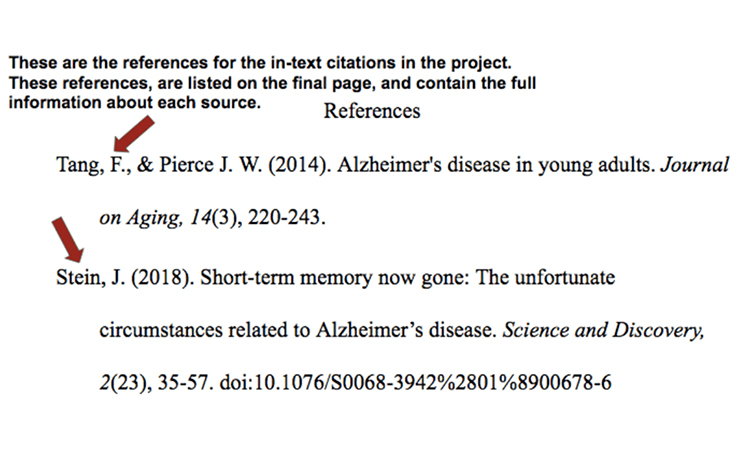
Authentic Reference Example:
Smith, J. (2024). Local SEO and AI citations. Journal of Digital Marketing, 12(3), 45–60.
These references will appear as (Smith, 2024).
Step-by-Step Creation
- Assemble Your Source Details-You have to start with collecting all the important data, like the author(s), year, article or paper title, journal name, volume and issue, page range, and preferably a DOI or URL. Digital Object Identifiers, or DOIs, are unique alphanumeric codes that are given to digital content like research articles to make sure that the link stays valid. Anytime URLs change, it helps you find, cite, and access academic publications online correctly.
- Use a Reliable Citation Tool-
You can use the Scribbr Citation Generator to generate an instant citation.
All you need to do is open the tool and input the information that you want to cite.
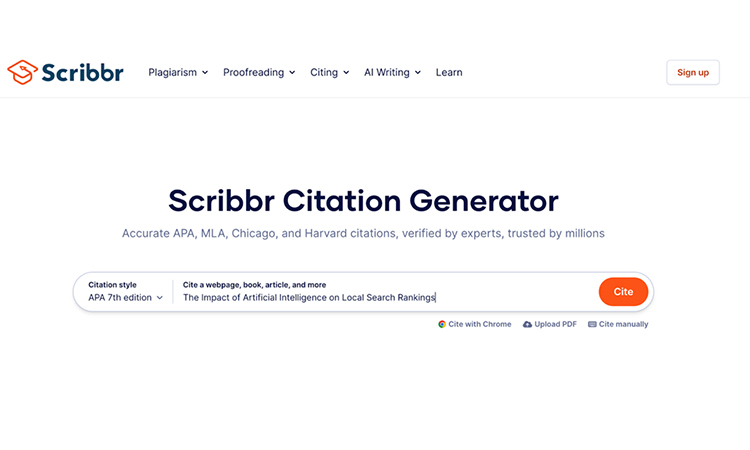
And then you get this kind of most trustworthy and accurate citation for your content.
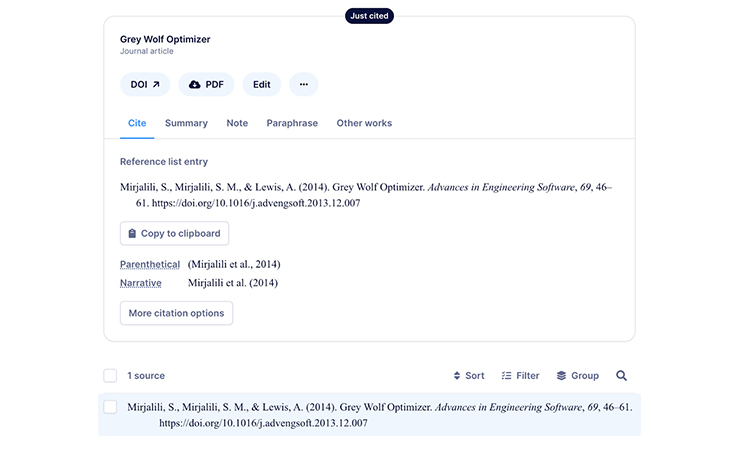
- Insert into Your Document- After that, you have to copy the formatted citation into your Google Docs or Microsoft Word. To uphold the integrity, you need to make sure that the in-text citation (e.g., (Smith, 2024)) correlates with your reference list entry.
- Apply APA Formatting Rules—Use double spacing and hanging indents in the reference list. When citing AI-generated content in APA style, treat that content as the output of an algorithm, with the author being the company that created the model.
- Verify Against Official Guidelines- Lastly, you need to cross-check with the APA Style website, Purdue OWL, or university guides to ensure adherence, primarily for electronic texts and author-date formats.
MLA Style Integration (Education & Schools)
For course assignments, colleges, universities, and institutions frequently use MLA (Modern Language Association) citations. MLA style is more flexible than APA or Chicago style, encouraging writers to adapt guidelines to their situation. It ensures consistency, gives proper credit to sources, and prevents plagiarism. MLA style is specifically common in the humanities. subjects like literature, history, and education studies. The correct MLA formatting indicates academic professionalism and dedication to specifics.
Example of MLA style:
- In-text citation: (Smith 45)
- Works Cited entry:
Smith, John. “Local SEO and AI Citations.” Journal of Digital Marketing, vol. 12, no. 3, 2024, pp. 45–60.
How: Gather fields → run through citation tools (Citation Machine/EasyBib) → insert in-text and Works Cited → proof numbers, names, dates.
Citation Machine to generate MLA citations-
Then, you can input the title or the information source in the search bar of the citation machine tool
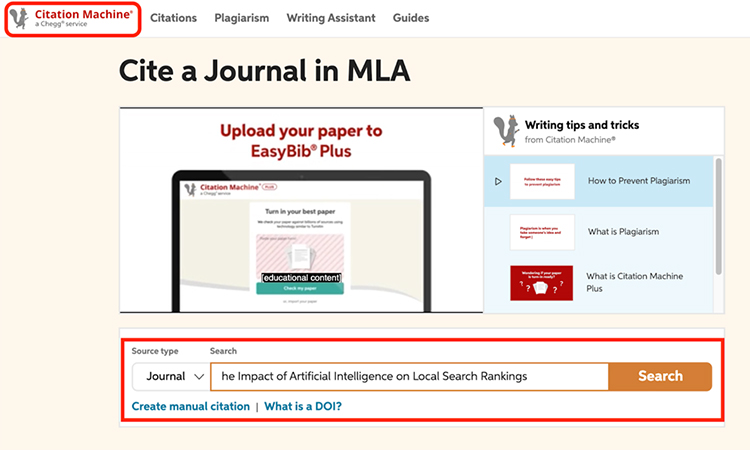
Here is the MLA citation like:
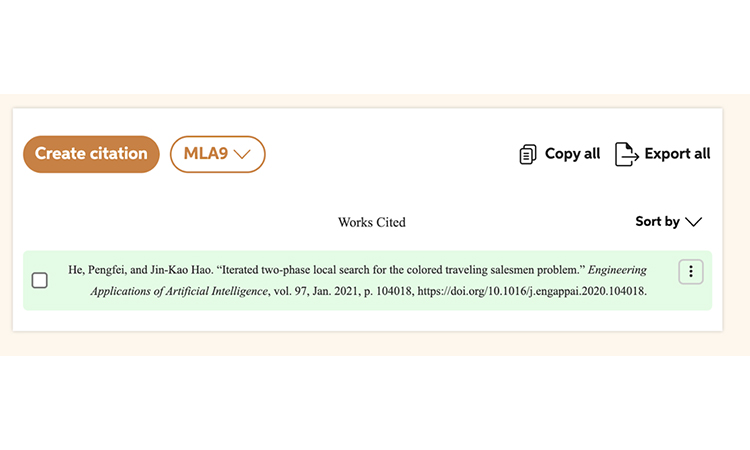
Chicago Style Citation
Chicago Citation is especially used in publishing, history, and social sciences. It integrates both notes & bibliography and author-date citation systems, making it ideal for works that require detailed references or archival sources. Academics, authors, and professional writers often like it better because it is clear and complete. Chicago Style is one of the most adaptable and frequently used citation formats,
Gather all source details: Author(s), title, publisher, year, edition, page numbers, DOI/URL if online.
Example of Chicago Citation (Notes & Bibliography style):
Footnote / Endnote citation:
John Smith, Local SEO and AI Citations (New York: Digital Press, 2024), 45.
Bibliography entry:
Smith, John. Local SEO and AI Citations. New York: Digital Press, 2024.
Author-Date style example:
- In-text citation: (Smith 2024, 45)
- Reference list entry: Smith, John. 2024. Local SEO and AI Citations. New York: Digital Press.
Step-by-Step: How to Write a Chicago Style Citation
Gather all source details: Author(s), title, publisher, year, edition, page numbers, DOI/URL if online
Decide on citation type:
- Notes & Bibliography for humanities and detailed reference notes.
- Author-Date for sciences and social sciences with concise references.
Use a citation generator tool:
You can take help from ZoteroBib to generate a Chicago-style citation.
Add your information title to the search bar. Then you can select which citation style you want.
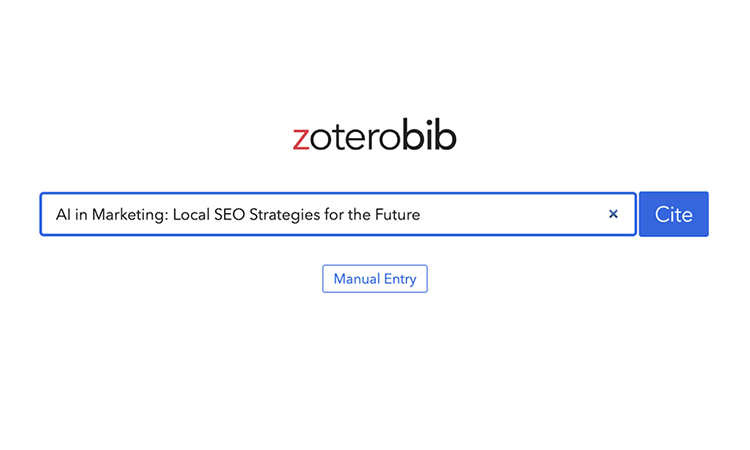
Here, showing you a Chicago citation generated from that citation tool—
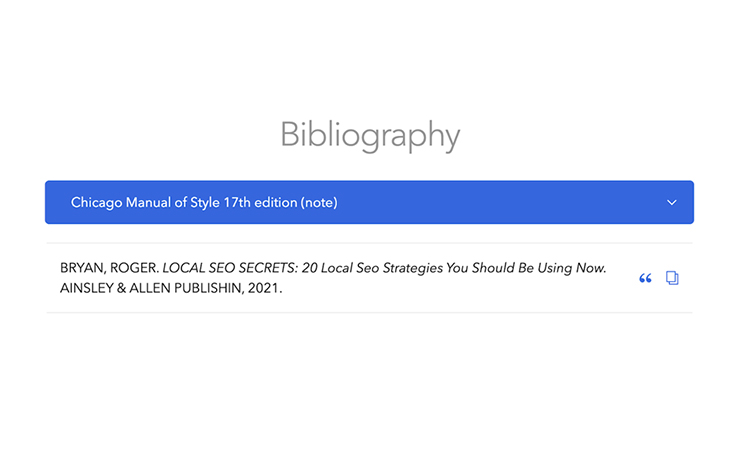
Insert citations:
- Footnotes/Endnotes: Moreover, you need to apply superscript numbers in your text to correspond to detailed notes.
- Bibliography/Reference list: Alphabetically list all sources at the end of your paper.
Proofread carefully: Then you need to analyze spelling, italics, punctuation, page numbers, and formatting. Even if your citation has small errors, it can affect credibility.
Academic-Style Citations for Local Authority
- Research paper citations linking to local expertise- Research paper citations linking to local expertise- Your writing should be filled with authentic details. Moreover, this citation helps local businesses to acquire authority and grow to rely on their target audience. It also showcases the value of collaboration between academic research and practical industry knowledge.
- Course assignments integration opportunities- Many students write papers about local topics. Teachers hand out projects about community businesses. These develop natural citations for your company. Moreover, you can take help from journal articles about your industry. Suppose some researchers research various local food trends and mention your restaurant in their findings. When researchers study pizza making, pizza shops benefit. When they study common household ingredients, local stores get mentioned. This will expand your brand awareness.
- Educational institution partnership citations— Furthermore, you need to collaborate with various educational institutions. It will interact with schools on research projects. This will help maintain your reputation and expertise in your field. Text generated by students mentions local businesses naturally. When writing about pizza dough, they might cite your bakery. When they study business, they look at examples of local successes.
The citation process should be simple. Give students easy-to-cite information. Therefore, you need to include your business title, date of founding, and contact details. It will be easy for them to create citations. Version control is also important here. So you need to update the facts about your business. Students find up-to-date information when they check facts. In the long run, this will improve connections better.
Remember: Academic citations construct long-term belief. They show your business is worth studying. They create lasting connections with schools and researchers.
Citation Machine Automation Workflows
- Bulk citation generation processes— A citation machine generates several citations at once. This is called bulk citation generation. This can save researchers significant time and effort when compiling reference lists.
- Quality control checkpoints—Moreover, the quality of citations is very important. You don’t just put irrelevant citations from any website. So you need to check thoroughly if the citations are authentic or not. After generating citations from AI tools, you need to analyze them with your intelligence.
- Cross-platform consistency maintenance—Cross-platform consistency indicates your citations appear the same everywhere. They work great together with Google Docs, Microsoft Word, and websites. Researchers and teachers will admire you extra because of this. Smart citations check their own credentials. They verify facts automatically. If a website changes, the tool informs you. This keeps your reference lists up to date.
Intelligent Directory Selection Using Citation Tools
- AI-driven relevance scoring for local directories— These tools will find the best business listings for you and pick them out for you. Some directories help your business more than others.
- Competitive gap analysis automation- The computer gives each directory a grade using AI-driven relevance scoring. AI tools look at lots of things. They check to see if the listing is right for your specific type of business. They can see how many people look at the listings. However, competitive gap estimation automation sounds hard, but it’s simple. The AI looks at the places where your rivals’ work has been cited. After that, it finds places they missed. This opens up new ways for you to make notes.
- ROI prediction for citation opportunities– That way, you can tell if a cost is worth your time. ROI stands for “return on investment.” In other words, “Will this help my business?” The AI figures out which sources will get you more people traffic.
AI Overview and Generative Search Inclusion
Artificial Intelligence (AI) transforms search patterns and also how search engines work. Keywords used to be the only way to search, but now AI can understand context and user intent and give accurate results instantly. This modification impacts how businesses appear online, especially in local search results.
Answer Engine Optimization (AEO): Why It Is Important
Your content needs to be optimized so that AI-powered search engines, such as Google’s Search Generative Experience (SGE), can find direct answers. For example, if someone asks, “Which bakery near me offers gluten-free pizza dough? Artificial intelligence (AI) will choose a company with correct information, checked citations, and content that is organized to give quick answers.
Generative Engine Optimization (GEO): The Next Step
You can be sure that GEO will include information about your business in generative AI outputs, which are the conversational summaries that people see in search results. It’s not just about keywords; it’s about relevance, significance, and legitimacy. Furthermore, verified citations across directories (Google Business Profile, Yelp, and Bing Places) show integrity, which raises your chances of showing up in AI-generated results.
Related: How Generative Engine Optimization (GEO) Is Changing the Future of Search?
Why This Is Relevant for Local Citations
AI needs organized and reliable info. Your business may be left out by AI if your name, address, and phone number (NAP) change from one site to another. Accurate citations tell search engines your business is real, trustworthy, and ready to serve local customers. Moreover, you can combine AI-powered search, AEO, and GEO to ensure your business rises in AI-driven local rankings.
Content structure optimization for AI citations
You need to give well-structured content. This advice can be followed.
- Google E-E-A-T as the Foundation
You need to develop your content for AI-driven search, which isn’t just about sprinkling keywords. The goal is to create a simple structure for artificial intelligence (AI) to read, assure, and reference. For modern search formats like AI Overviews and conversational assistants, your content should follow Google’s E-E-A-T framework—Experience, Expertise, Authoritativeness, and Trustworthiness. E-E-A-T isn’t a direct ranking metric, but it’s how Google (and AI systems) evaluates content quality.
- Experience- It shows a firsthand connection with a topic, enhancing authenticity. For example, a local SEO professional discussing campaign outcomes gives real-world value. AI models prefer data that is based in reality over generic information.
- Expertise- Experts must write or review the content. For example, a medical blog should feature feedback from a trained doctor. Expertise indicates to AI that the text is accurate and credible for citation.
- Authoritativeness- Being recognized as a leader in your field through backlinks, mentions, or credentials—reinforces authority. Search engines and AI tools rely on such signals to prioritize sources that are widely respected.
- Trustworthiness- Transparency, accuracy, and ethical practices create trust. You need to display author bios, cite credible sources, and maintain secure websites to signal integrity. These signs of credibility help AI decide if your content should be included in search summaries.
Related: Understanding E-E-A-T in SEO: Why It Matters in Google’s Rankings
- Use Clear, Semantic Structure
Your content should have proper headings and be well-structured. AI prefers well-organized content. So you can incorporate semantic HTML, like <h2>,<h3>, bullet points and numbered lists—these help AI “scan” quickly. This structure also enhances readability for users. Additionally, breaking up your content into smaller sections can help keep readers engaged and make it easier for them to find the information they are looking for. Moreover, you can keep large text in sections with descriptive subheadings to help AI extract key points for citations and summaries.
- Keyword Research Is Very Important
Keywords are very important for improving search engine optimization (SEO) and driving organic traffic to a website. You can mostly search words or phrases related to your business or industry. Moreover, you can search for words that your target audience uses.
You can take help from these keyword research tools: Semrush, Ahrefs, Google Keyword Planner, Moz Keyword Explorer, and Ubersuggest.
I give you a quick tour of how to research keywords on Semrush.
First, log in to the Semrush tool
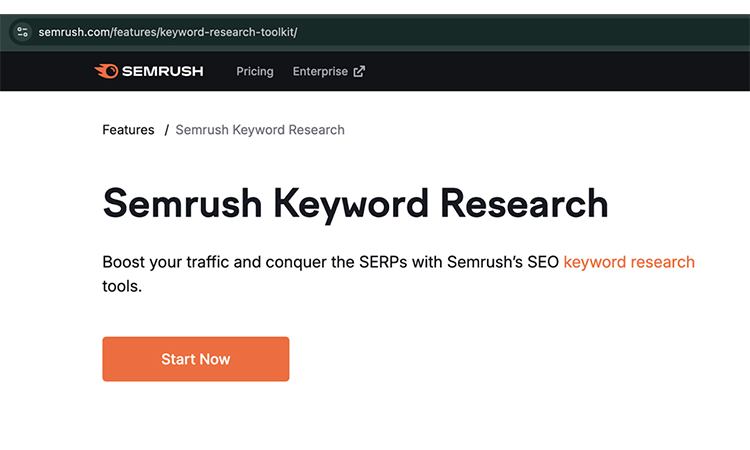
Then go to “Keywords Overview” or “Magic Keyword Tool”
After that, put your seed keyword in the search bar. Seed keyword is the main search term your target audience uses to search for your niche services or products. Like, if you have a pastry shop, then your main keyword can be “Best pastry shop near me” or you can also create region-specific keywords like “Best pastry shop in Boston”
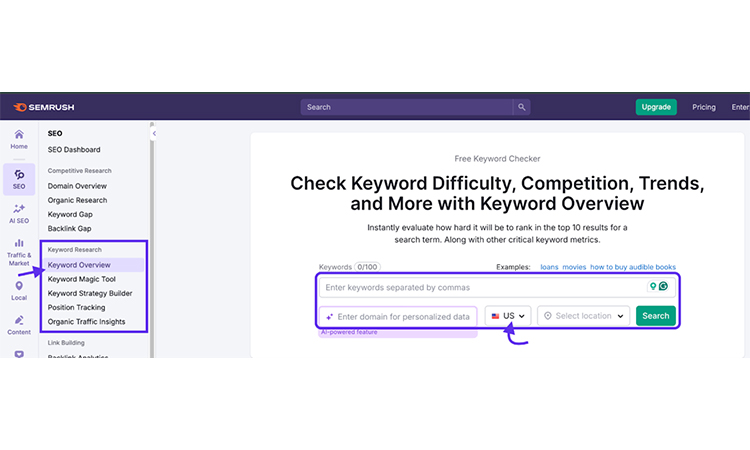
Then you get your whole keyword list. You need to choose them by the following points
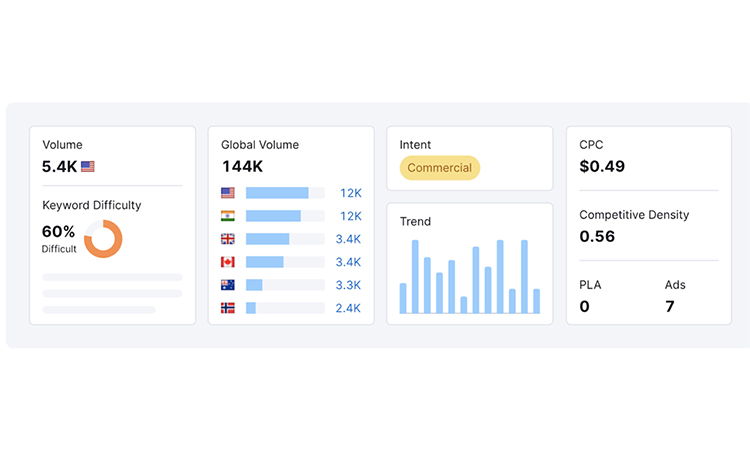
Keyword Metrics Explained (For Easy Understanding)
| Metric | What It Means | Why It’s Important | Tips to Choose Smartly |
| Keyword Volume | How many people search for this word each month? | Shows if people are really interested in this topic. | Pick words with enough searches but not too competitive. |
| Keyword Density | How often does the word appear in your content? | Too much = spammy, too little = invisible to Google. | Use naturally; 1–2% is safe. |
| Search Intent | What people want when they search (info, buy, compare). | Helps you write the right type of content. | Match your page to what users want (info page, product page). |
| Trend | If the word is becoming more or less popular over time. | Avoids wasting effort on dying topics. | Use Google Trends to check if interest is rising. |
| CPC (Cost Per Click) | How much advertisers pay for a click. | Shows the commercial value of the word. | If CPC is high, it may mean good business potential. |
| Competitive Density | How many others are trying to rank for it? | Helps to know the difficulty of beating competitors. | Balance: not too high, not zero. |
| PLA (Product Listing Ads) | Shows if Google Shopping ads appear for this term. | Useful for e-commerce keywords. | Pick if you sell products that people are already buying. |
| Ads Presence | If paid ads show for this keyword. | Tells if businesses see profit in this keyword. | If many ads, competition is high; maybe target long-tail. |
Provide Direct, Conversational Answers (AEO)-
Answer Engine Optimization, or AEO, is all about writing content that directly answers questions in a conversational style. Search Generative Experience (SGE) from Google and other AI systems use this style to give short answers right in search results.
Show Contextual Authority (GEO/AIO)
The goals of Generative Engine Optimization (GEO) and AI Optimization (AIO) are to find content that AI systems can understand, trust, and add to their databases of knowledge. When writing, you need to make sure to use the same words and phrases, clear up any confusion, and organize your ideas so they are easy to understand.
For example, define “AI citation” early, support it with real-world examples, and use the same phrasing across headings and paragraphs. Therefore, this helps AI properly link the ideas when coming up with answers.
Cite Credible Sources Explicitly- To create assurance, AI systems depend on citations from trusted sources. So you need to include particular in-text references, links to credible publications, or thorough case studies to improve your E-E-A-T indicators.
Benefit from Structured Data (Schema)
Add schema (JSON-LD format) code to your website to help search engines (like Google, Bing, and AI-powered search tools) understand your content better. Search engines and AI can get more information from it, which helps them provide more relevant results like frequently asked questions, step-by-step guides, reviews, and answers made by AI.
Which Types Are Best for AI Citations?
- FAQPage Schema – Emphasizes inquiries and responses directly in AI search summaries.
- HowTo Schema—Great for step-by-step guides (e.g., “How to Create AI Citations”).
- Article/Blog Posting Schema—Presents specific info about authorship, date, and credibility (important for E-E-A-T).
- LocalBusiness Schema—This is very important for local rankings; it covers NAP (Name, Address, Phone).
- Review/Rating Schema—Improves legitimacy signals and click-through rates.
How to Implement Schema?
- Use Tools: Google’s Structured Data Markup Helper, Merkle Schema Generator, or RankMath/Yoast (WordPress).
- Add JSON-LD Code: Insert the generated code into your website’s <head> or CMS plugin.
- Align with Content: Verify that the schema matches on-page text (no fake data).
How to Check if the Schema Works?
- Google Rich Results Test: https://search.google.com/test/rich-results
- Schema.org Validator: Validates JSON-LD structure.
GSC Enhancements Report: Tracks if Google discovered and executed your structured data.
Keep Content Fresh and Reviewed
Furthermore, you need to update your content frequently. Frequent audits ensure that citations are accurate, information is up-to-date, and new trends are represented.
Voice Search Optimization Through Citations
- People speak to their phones differently than they write. When someone asks, “Where are the best restaurants near me?” They utilize typical conversational language. Your citations must be appropriate for this speaking style.
- Conversational citation layout refers to writing in the same way that people speak. Instead of “Pizza Restaurant—Downtown Location,” you use “Best Pizza Place Downtown.” This is useful when people use voice search.
- Local intent keyword integration includes location keywords in your citations. Words like “near me,” “in town,” or “close by” are helpful. When users search by voice, they consistently look for these key phrases.
- Featured snippet optimization helps your company appear in the response box. This is the unique box at the top of Google’s results. Good citations will help you get inside this box.
Advanced AI Citation Strategy
Citations must go beyond basic NAP consistency as search develops into an ecosystem driven by AI. To future-proof local visibility, the next generation of AI citation statistics emphasizes multimodal experiences, predictive analytics, and integration with cutting-edge AI platforms.
- Multimodal Citation Integration
AI-driven search engines like Google SGE, Bing Chat, and Apple’s AI Search will rely on multiple content formats—not just text. These days, optimizing images and videos for citations is very important. For example, integrating location data (geo-tagging) in images of your store or products ensures they pop up in AI-powered image searches. Similarly, video citations—like inserting legitimate business details in YouTube descriptions and transcripts—improve trust indicators.
Moreover, you need to adapt voice-first citation strategies. Local searches on Alexa, Siri, and Google Assistant are very popular, so businesses need citations that can be read by voice. The most used examples are schema markup and platforms like Bing Places or Google Business Profile that voice assistants can use to get clear, structured data.
Cross-device citation consistency makes sure that the information about your business is correct on smart TVs, car dashboards, mobile apps, and Internet of Things (IoT) devices. AI tools like Yext and BrightLocal can automate this process, maintaining a uniform presence everywhere.
- Predictive Citation Building
Predictive AI models look ahead to see what opportunities might come up in the future. Tools like Semrush’s Listing Management and Moz Local now use AI trend analysis to recommend citation updates before adversaries act. For example, if “organic coffee making” gains popularity in your city, predictive AI alerts you to update your menu citations.
Seasonal citation strategy automation further improves local ranking. AI platforms observe seasonal consumption (holidays, festivals, and peak shopping periods) and consequently push optimum citations at the right time. This proactive system saves time and extends reach.
Most importantly, using AI to plan for local market expansion makes sure that your citations are ready before you open new locations. You can set up verified citations early and beat your competitors by using predictive mapping to find new neighborhoods or cities where your service is likely to do well.
- Integration with Emerging AI Platforms
We will experience search engines deeply connected with AI assistants and platforms. As an example, the ChatGPT plugin citation optimization helps manufacturers add correct, well-structured citations directly to AI chat interfaces. It will make sure that their data shows up in conversational search results.
Google’s new multimodal AI platform, which uses text, images, and voice together, is at the center of Gemini’s integration strategies. You need to promote citations with Google-approved schema and APIs, which will ensure appearance in Gemini’s AI answers.
Last but not least, future AI model preparation methods include constant adaptation to evolving AI needs. Businesses can stay up-to-date on new AI standards by using citation tools like Uberall or Synup that are powered by AI. This way, they won’t fall behind as search technology improves.
How to Measure and Optimize Local Citation Framework?
To find out if your AI citations are effective, you must monitor their impact.
- AI Citation Performance Tracking
You can start with a local pack ranking correlation study, which determines how your citations influence your position in Google’s local results. If your business details appear consistently across platforms, you’ll often rank higher. Voice assistants like Siri and Google Assistant get their information from correct citations, so you should make voice searches more visible. If your business isn’t found when someone says, “Find a bakery near me,” you’re missing customers.
Furthermore, AI overview inclusion rate monitoring helps you see how often your business is prominent in AI-generated search listings. More reliable and consistent citations will increase your chances of being recognized.
- Competitive Citation Intelligence
Then you need to know what your competitors are doing to stay ahead. Artificial intelligence (AI)-powered competitor citation analysis checks where your competitors are listed and how well they’re doing. It shows you where your competitors are visible but you’re not, which is called gap identification and opportunity mapping. So you need to fill those gaps, which can give you an advantage. You can also use market share impact assessment to see if improving your citations. It will make you more prominent compared to other people in your area. This isn’t just about ranking; it’s about dominating the local search landscape.
You can utilize these tools for local citation.
- Whitespark Local Citation Finder
- Semrush (Local SEO Toolkit)
- Moz Local
- GeoRanker
- Continuous Optimization Protocols
You have to constantly improve your citations. So, you can begin with A/B testing citation variations— Try small changes in your business description or categories to see which performs best. Moreover, you can employ performance-based citation prioritization to decide on platforms generating the most results instead of wasting effort everywhere. Finally, use AI tools to improve your quality score automatically. These tools can find mistakes, suggest updates, and make sure your information is always correct. This keeps your citations up-to-date, reliable, and in line with how search engines are changing.
What Does the Future Hold for AI Citations in Local SEO?
- Local Search Evolution Predictions– Hyper-local AI recommendation systems will be used in local SEO. These systems will change search results based on micro-locations and new user intent in real time. Personalized citation weight algorithms will give more weight to citations that people in certain industries or audiences trust. Cross-platform citation consolidation will combine business data across Google, Apple Maps, social platforms, and modern search engines. It will maintain similar brand representation everywhere.
- You can develop your AI citation strategy for the future- Scalable AI citation frameworks are what businesses need to use. These are automated systems that can handle thousands of citations across multiple platforms without any human help. Future-proofing citation approaches needs structured data, schema markup, and AI-driven search changes. Furthermore, you need to get early adoption of emerging platforms—like timing for new AI-driven search engines and voice assistants—which will give businesses a first-mover advantage. Those who adapt early will achieve local appearance while competitor’s lag.
Our Final Words Before We Proceed
So, at the end of our discussion on AI citation, I can assume you have all your queries resolved. You have the knowledge to generate citations for academic purposes and how this will help you get local rankings. You have to use AI citation to upgrade your business NAP across various platforms. It will boost your work credibility and reduce time efforts.
Yes, you can use various AI citation tools to check all your citations, but if you take a professional SEO expert’s help, you can get 100x better results. So, you can consult with one of the best digital marketing agencies to help you create AI citations. They can provide you with personalized guidance on how to optimize your citations for maximum impact. So, you may benefit from their expertise and ensure that your business stands out in local search results and attracts more customers.
So, don’t think too much; if you want to stay ahead of your competitors, start using AI citations and take the help of artificial intelligence to uplift your brand on local ranking signals.


